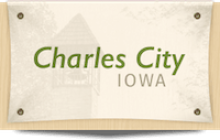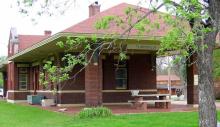Charles City, Iowa, RFP : Responses Due May 5th
Charles City is looking to join the ranks of Iowa municipalities that offer fast, affordable, reliable connectivity via publicly owned fiber. The town of approximately 7,600 people released a Request for Proposals (RFP) for a Fiber-to-the-Premise Feasibility Study earlier this month. Responses are due May 5th.
In 2005, Charles City voters approved a referendum that gave the city the authority to establish a telecommunications utility. They’ve already taken steps to pursue an Internet network infrastructure project, but incumbents Mediacom and CenturyLink have made marginal improvements in local services whenever the city appeared to move beyond a the feasibility study phase. So far, the city has held off from making their own investment.
In 2014, they joined with ten other Iowa communities to study the possibility of a regional effort, which later became known as the Iowa Fiber Alliance (IFA). The positive outcome of that study encouraged Charles City to continue on and, after funding a local preliminary study, they decided to commission a full feasibility study.
In this RFP, Charles City states that its intention is to offer retail services, but the study should also include information about other business models like open access and public-private partnerships. They are looking for several proposed financing options, including General Obligation (GO) bonds and revenue bonds.
Iowa Fiber Alliance
The regional effort in which Charles City is participating may or may not come to fruition, so the community needs its consultant of choice to consider three different possibilities. From the RFP:
SCENARIO 1: IFA builds a fiber transport network of which Charles City has ownership rights. The City shares a proportional share of network construction and operations. The IFA aggregates Internet bandwidth among members and provides at least two diverse connections to peering points. For video and telephone service architecture, Charles City receives services from other IFA members.



